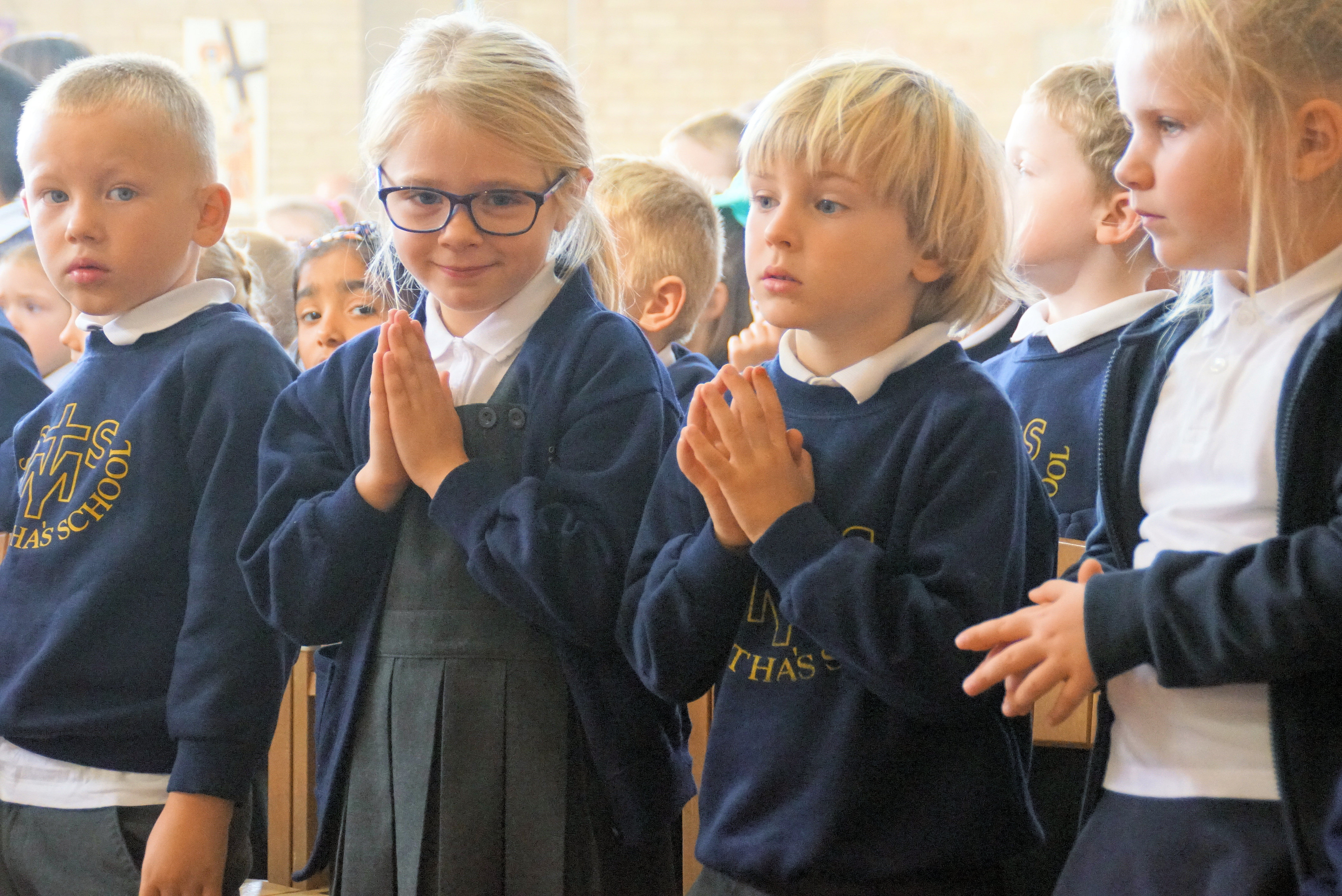
There are more than 29,000 schools in England and Wales. Within the state-funded sector, all Catholic schools are either voluntary aided schools or academies (academies do not apply in Wales).
How many Catholic schools are there?
There are 2,087 Catholic schools in England and 82 Catholic schools in Wales. Catholic schools make up 9% of the national total of state funded schools. The Catholic Church is the largest provider of secondary education and the second largest provider of primary education in the country.
How many pupils attend Catholic schools?
There are just over 850,000 pupils in Catholic schools. These pupils are educated in a culture of inclusion, tolerance and mutual respect, providing pupils with a collection of values that enable them to play a full part in British society in service of the common good.
Do Catholic schools use admissions to select children from affluent backgrounds?
Like all schools, Catholic schools have over-subscription criteria in order to fairly determine school places. Church teaching places a duty on Catholic schools to care for the poor and educate those who are socially, academically, physically or emotionally disadvantaged. This is reflected through the pupil populations in Catholic schools.
Catholic schools serve a wide range of diverse and disadvantaged communities, many of whom come from the new and old migrant communities. Catholic schools educate 50% more pupils from the most deprived backgrounds than the state sector. Just under a fifth of all pupils in Catholic statutory education meet the highest national deprivation criteria, compared to a 12.8% England average. Similarly, a quarter fewer pupils from the more affluent areas attend Catholic schools.
Do Catholic schools serve their local community?
On average, Catholic schools have catchment areas ten times larger than community schools. This means their pupil population sometimes does not directly mirror the local community immediately surrounding the school. A larger catchment area increases social mixing and children from different communities and areas are brought together. Pupils from ethnic minorities make up 45.5% of the Catholic school population, compared to an England state school average of 37.4% — for Wales the Catholic figure is 35.6%, and the Welsh average 14.3%.
Are Catholic schools only for Catholic children?
Catholic schools welcome children from families from a range of faith backgrounds: 40% of pupils at Catholic schools are of other faiths or none. Catholic schools educate more than 348,894 non-Catholics and have a track record of supporting minority religions as they integrate into the local community.
Do Catholic schools teach the national curriculum?
All Catholic voluntary aided schools teach the national curriculum including evolution and reproduction in science. Catholic schools do not teach creationism as to do so would be against the teaching of the Catholic Church.
Do Catholic schools teach about other faiths?
Yes. Catholic schools are obliged to follow guidance from the Catholic Bishops' Conference which states that Religious Education must provide pupils with a basis of knowledge and theological understanding of the Catholic faith and an awareness of the faith and traditions of other religions in order to respect and understand them.
Do Catholic schools teach Relationship and Sex Education (RSE)
In accordance with guidance from the Department for Education, Catholic schools teach Relationship and Sex Education in an age-appropriate way. Moreover, the Catholic sector is the only education provider to have a comprehensive model RSE curriculum for ages 3 to 19.
How are Catholic schools and academies accountable?
Catholic schools and academies have the same accountability to the local authority/Department for Education/Welsh Government as non-Catholic schools and academies. In addition to this, they are also subject to an extra inspection regime to provide accountability to their diocesan bishop that high academic standards and the Catholic life of the school are maintained.
Who funds Catholic schools?
The school buildings and land of Catholic schools are owned by the Catholic Church. The Church provides these premises, at no charge, to enable the state to fulfil its obligation to provide education for the population. The day to day running costs of Catholic schools are funded by the state in the same way that all schools are funded (either through local authority or DfE funding agreements). The Church covers 10% of the capital costs for the maintenance of the premises in all voluntary aided schools.
Through this arrangement the Catholic Church saves the taxpayer tens of millions of pounds a year.
Do you have to be Catholic to teach in a Catholic school?
More than 40% of teachers in Catholic schools in England and Wales are Catholic. Catholic schools value and respect all staff members regardless of backgrounds or beliefs and promote and support the vocation of teaching.
For certain leadership positions (e.g. Headteacher, Deputy Headteacher and Head of Religious Education) there is a requirement that the position be filled by a practising Catholic in order to maintain the Catholic ethos of the school. This is in line with the Equalities Act 2010.

